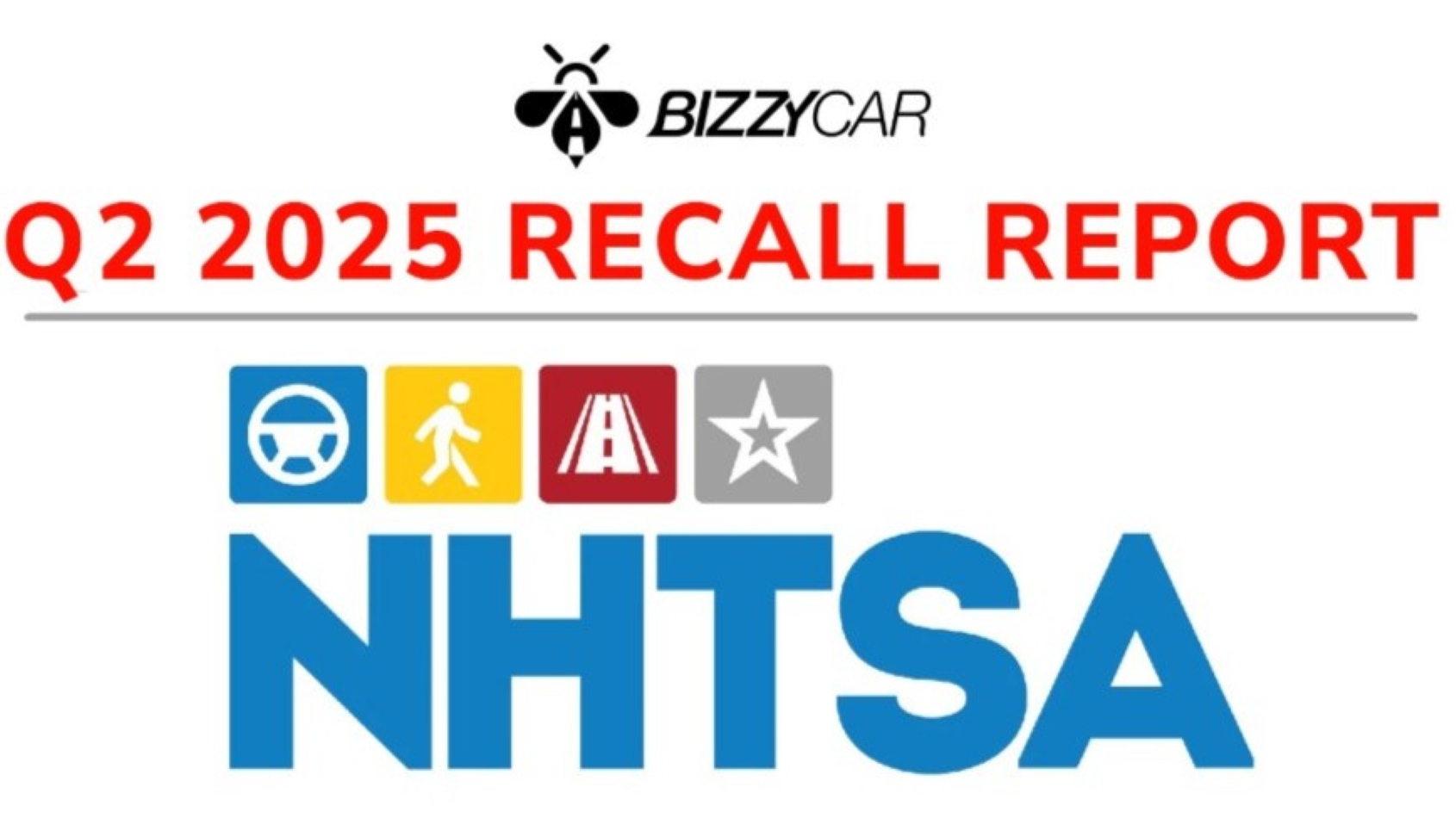BizzyCar report shows recalls soaring to 7.3 million vehicles in Q2

Image courtesy of BizzyCar.
By subscribing, you agree to receive communications from Auto Remarketing and our partners in accordance with our Privacy Policy. We may share your information with select partners and sponsors who may contact you about their products and services. You may unsubscribe at any time.
Vehicle recalls spiked in the second quarter of 2025, according to the latest report from BizzyCar.
The dealership recall management platform’s Q2 2025 Recall Report found more than 7.3 million vehicles were recalled between April and June, the most in more than a year and more than double the total of Q1.
The report, which analyzes data from the National Highway Traffic Safety Administration, showed almost half of the vehicles recalled in Q2 were Fords, which led all manufacturers with more than 3.3 million vehicles recalled as part of 49 recall campaign.
“This spike in recalls comes just as families are preparing for summer travel,” BizzyCar Ryan Maher said. “Most of these issues involve serious safety risks, so it’s critical that drivers schedule repairs without delay.”
The report noted 95% of all vehicles recalled in Q2 were part of campaigns involving defects that pose a risk of crash or injury if not addressed. There were three “do not drive” and three “park outside” advisories issued.
The most common issue for recalls during the quarter was for back-over prevention systems, which affected 2.59 million vehicles.
Subscribe to Auto Remarketing to stay informed and stay ahead.
By subscribing, you agree to receive communications from Auto Remarketing and our partners in accordance with our Privacy Policy. We may share your information with select partners and sponsors who may contact you about their products and services. You may unsubscribe at any time.
Just over 1 million vehicles were eligible for over-the-air software-based repairs. Since early 2022, just 14.7% of all recalls have been addressed through OTA updates, which BizzyCar said highlights the ongoing importance of in-person service, especially for hardware-related safety fixes like steering, brakes and seat systems.
“OTA updates offer convenience, but they also eliminate critical dealership touchpoints,” Maher said. “Many safety fixes still depend on trained technicians and certified parts. Dealerships remain the front line of recall completion.”
BizzyCar analysts said the Q2 surge represents a return to historical recall norms after an unusually quiet Q1, but added supply chain disruptions and global trade pressures could drive even higher volumes in the second half of the year — mirroring the trend of 2020-21, when parts shortages led OEMs to ship vehicles that later required retrofitting.
For dealerships, high recall volume presents an opportunity to re-engage customers, boost fixed ops revenue and strengthen long-term loyalty, the company said.
“Recall repairs are high-value, low-friction service lane visits,” Maher said. “For dealers investing in mobile service or streamlined scheduling, this is a chance to turn a compliance obligation into a retention engine.”


